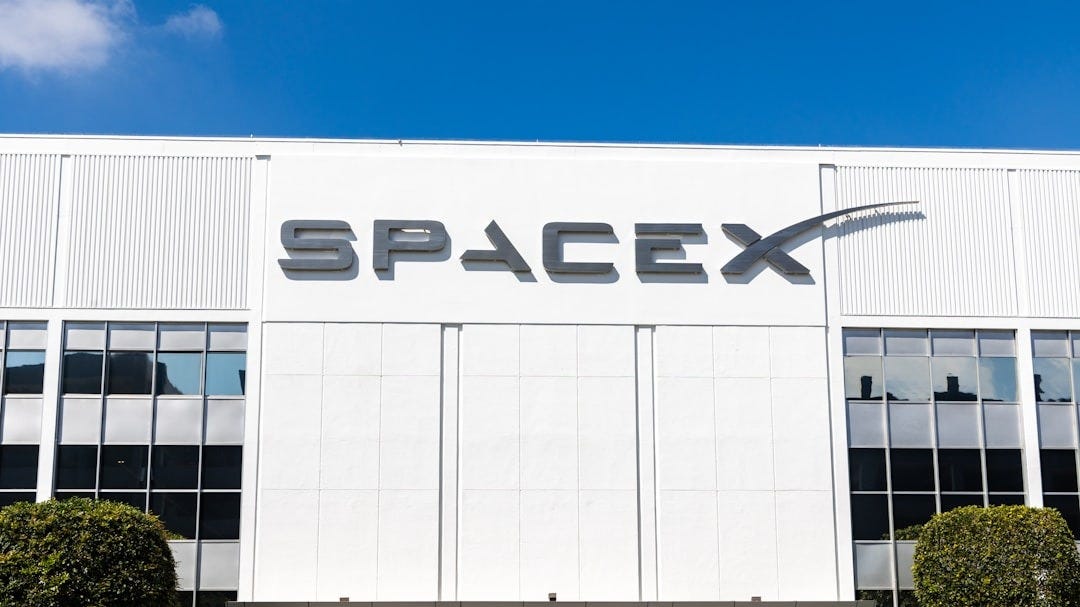Elon Musk To Sue FAA Over Proposed Fines on SpaceX
SpaceX vs. FAA: A Legal Battle Over Regulatory Compliance.

Disclaimer: This article is intended for informational purposes only and does not constitute legal advice. Readers should not construe any information contained herein as legal or regulatory guidance.
We are working endlessly to provide free insights on the stock market every day, and greatly appreciate those who are paid members supporting the development of the Stock Region mobile application. Stock Region offers daily stock and option signals, watchlists, earnings reports, technical and fundamental analysis reports, virtual meetings, learning opportunities, analyst upgrades and downgrades, catalyst reports, in-person events, and access to our private network of investors for paid members as an addition to being an early investor in Stock Region. We recommend all readers to urgently activate their membership before reaching full member capacity (500) to be eligible for the upcoming revenue distribution program. Memberships now available at https://stockregion.net
Elon Musk, CEO of SpaceX, recently announced plans to challenge the Federal Aviation Administration (FAA) in court. The dispute arises from the FAA's proposal to fine SpaceX over $630,000 for alleged violations of launch regulations during two missions in 2023. Musk has publicly criticized the FAA's actions as "regulatory overreach," setting the stage for a potential clash between the aerospace giant and the federal regulatory body.
The Situation
SpaceX, under the leadership of Elon Musk, has rapidly ascended as a major player in the aerospace sector, particularly known for its pioneering work in commercial space travel and satellite technology. However, this rapid growth has not come without scrutiny. The FAA, responsible for overseeing the safety and compliance of commercial space transportation, has previously flagged issues with SpaceX operations.
The current conflict centers around two specific incidents. The first occurred in May 2023 during a launch from Florida's Cape Canaveral Space Force Station, which was part of the PSN SATRIA mission, a commercial satellite launch. According to the FAA, SpaceX used an unapproved launch control room and failed to conduct a mandatory pre-launch poll. The second incident, in July 2023, involved the EchoStar XXIV/Jupiter mission, where SpaceX allegedly used an unapproved rocket propellant farm as its fuel supplier.
The FAA's allegations highlight two main areas of concern: the use of unauthorized facilities and suppliers, and a lack of adherence to established pre-launch procedures. In the aerospace industry, such compliance issues are taken seriously due to the potential risks associated with space launches, which can impact not only the mission but also public safety and the environment.
Unapproved Launch Control Room: For the May 2023 launch, the FAA claims that SpaceX operated from a control room that had not received the necessary approvals. This control room is a critical component of any launch operation, responsible for monitoring and managing all aspects of the launch sequence. The lack of approval suggests that the room may not have met specific regulatory standards required to ensure operational safety.
Failure to Conduct a Pre-Launch Poll: This procedural oversight refers to the failure of SpaceX to conduct a pre-launch poll, a safety measure designed to confirm that all systems and processes are ready for launch. This step is crucial to identify and mitigate any last-minute issues that could jeopardize the mission.
Unapproved Rocket Propellant Supplier: The July 2023 incident involved the use of a rocket propellant farm that had not been approved by the FAA. The choice of fuel and supplier is essential in launch operations, impacting both the safety and success of the mission. Using an unapproved supplier raises questions about regulatory compliance and risk management.
Legal and Regulatory Context
The FAA's role in the aerospace sector is critical, tasked with ensuring the safety of commercial space transportation. This responsibility includes enforcing compliance with established regulations and guidelines, which are designed to mitigate risks associated with space launches. The FAA's safety oversight covers everything from the technical specifications of the launch vehicle to the operational procedures followed by the company.
In response to these allegations, Elon Musk's decision to file a lawsuit against the FAA suggests a disagreement not only on the specifics of the incidents but also on the broader regulatory framework governing space launches. Musk's characterization of the FAA's actions as "regulatory overreach" indicates a belief that the regulatory body is imposing excessive or unwarranted restrictions that could hinder innovation and progress in the aerospace sector. The outcome of this legal battle could have significant implications for SpaceX and the broader aerospace industry. For SpaceX, successfully contesting the fines could reinforce its position as a leading innovator, potentially influencing future regulatory approaches. However, if the FAA's fines are upheld, SpaceX may need to adjust its compliance strategies, possibly affecting its operational timelines and costs.
For the aerospace industry, this case could set a precedent in how regulatory bodies interact with rapidly advancing private companies. As the industry continues to grow, with more private entities entering the space race, the balance between innovation and regulation becomes increasingly critical. The case could influence future regulatory frameworks, potentially leading to adjustments in how safety and compliance are enforced. This legal challenge presents the ongoing tension between regulatory authorities and private companies in the aerospace sector, highlighting the need for clear and effective communication channels. As companies like SpaceX push the boundaries of space exploration, regulatory bodies must adapt to ensure that safety standards keep pace with technological advancements.
The impending legal confrontation between SpaceX and the FAA marks a crucial moment in the evolution of the aerospace industry. As Elon Musk and SpaceX prepare to challenge the FAA's proposed fines, the case will likely draw attention from industry stakeholders, regulators, and legal experts. The outcome could reshape the regulatory landscape, influencing how innovation is balanced with safety and compliance in the rapidly evolving field of commercial spaceflight.
Disclaimer: This article is intended for informational purposes only and does not constitute legal advice. Readers should seek professional guidance before making any decisions based on the information presented.


